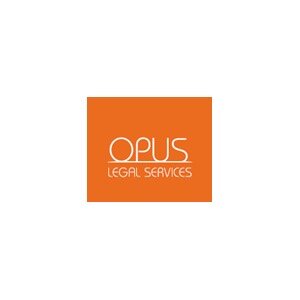Best Bankruptcy Lawyers in Iceland
Share your needs with us, get contacted by law firms.
Free. Takes 2 min.
Or refine your search by selecting a city:
List of the best lawyers in Iceland
About Bankruptcy Law in Iceland
Bankruptcy law in Iceland is primarily governed by the Act on Bankruptcy, Etc., No. 21/1991, which outlines the legal framework for managing financial insolvency among individuals and businesses. The Icelandic legal system provides mechanisms for both restructuring and liquidation, depending on the debtor's situation. The goal of bankruptcy proceedings is to fairly distribute the debtor’s assets among creditors and, where possible, allow the debtor to restructure and continue operations.
Why You May Need a Lawyer
There are several situations in which individuals or businesses in Iceland might require the help of a lawyer specializing in bankruptcy law. Some of these include:
- If you or your business are facing insurmountable debts and need to explore restructuring options.
- When facing legal action or creditor claims that could result in asset seizure or affect business continuity.
- To understand the implications of bankruptcy on personal credit and future business endeavors.
- When needing representation in court proceedings related to bankruptcy declarations or disputes.
- To ensure compliance with all necessary legal filings and court procedures to minimize legal risks.
Local Laws Overview
Some of the key aspects of bankruptcy law in Iceland that are significant include:
- The distinction between personal insolvency and corporate insolvency, each having different procedures and legal implications.
- Provisions for composition, allowing debtors to propose a payment plan to creditors as an alternative to bankruptcy.
- The role of the District Commissioner, who oversees the administration of bankruptcy proceedings and distribution of assets.
- Strict filing timelines and documentation requirements that must be adhered to ensure the legality of proceedings.
- Conditions for automatic discharge from certain debts after the completion of bankruptcy proceedings.
Frequently Asked Questions
What is the process for declaring bankruptcy in Iceland?
The process consists of filing a petition for bankruptcy with the District Court, followed by an adjudication process where the court assesses the debtor’s financial situation to determine insolvency.
Can I keep any assets after declaring bankruptcy?
Certain essential household and personal items may be exempt from claims, depending on the court's assessment of necessity.
How does bankruptcy affect my credit score?
Bankruptcy can significantly impact an individual's credit rating, potentially affecting the ability to borrow money in the future.
Are there alternatives to declaring bankruptcy?
Yes, debt restructuring or composition agreements can often be pursued as alternatives, potentially allowing debtors to manage their obligations without formal bankruptcy proceedings.
What is the role of a trustee in bankruptcy proceedings?
The trustee is appointed to manage and liquidate the debtor’s assets and distribute proceeds to creditors.
How are creditors involved in the bankruptcy process?
Creditors can file claims and participate in meetings to discuss asset distribution and restructuring plans.
What happens to my business if it goes bankrupt?
Depending on its viability, the business may be restructured if possible, or assets may be liquidated if continuing operations is impractical.
How long does it take for bankruptcy proceedings to conclude?
The duration varies based on complexities and issues involved, but generally, the process can take several months to a few years.
Is it possible to reverse a bankruptcy decision?
Reversal is rare and typically possible only if new evidence can prove solvency or significant procedural mistakes are found.
Can foreigners declare bankruptcy in Iceland?
Foreigners can declare bankruptcy if they are domiciled in Iceland or their significant business activities are based there.
Additional Resources
For those seeking further assistance and resources regarding bankruptcy in Iceland, consider the following:
- The Icelandic Financial Supervisory Authority (FME) provides guidance and regulatory support.
- The District Commissioner's office, which oversees local bankruptcy matters.
- Legal consultation services specializing in bankruptcy law for personalized advice.
- Financial consultancy firms that offer debt management and restructuring strategies.
Next Steps
If you require legal assistance in bankruptcy matters, consider taking the following steps:
- Schedule a consultation with a lawyer specialized in bankruptcy law to evaluate your situation.
- Prepare a detailed account of your debts, assets, and income to present during legal consultations.
- Evaluate alternative options such as debt consolidation or composition agreements to determine if bankruptcy can be avoided.
- Familiarize yourself with relevant legal documentation and processes for bankruptcy filing in Iceland.
- Contact local legal aid organizations if you require subsidized legal support or advice.
Lawzana helps you find the best lawyers and law firms in Iceland through a curated and pre-screened list of qualified legal professionals. Our platform offers rankings and detailed profiles of attorneys and law firms, allowing you to compare based on practice areas, including Bankruptcy, experience, and client feedback.
Each profile includes a description of the firm's areas of practice, client reviews, team members and partners, year of establishment, spoken languages, office locations, contact information, social media presence, and any published articles or resources. Most firms on our platform speak English and are experienced in both local and international legal matters.
Get a quote from top-rated law firms in Iceland — quickly, securely, and without unnecessary hassle.
Disclaimer:
The information provided on this page is for general informational purposes only and does not constitute legal advice. While we strive to ensure the accuracy and relevance of the content, legal information may change over time, and interpretations of the law can vary. You should always consult with a qualified legal professional for advice specific to your situation.
We disclaim all liability for actions taken or not taken based on the content of this page. If you believe any information is incorrect or outdated, please contact us, and we will review and update it where appropriate.
Browse bankruptcy law firms by city in Iceland
Refine your search by selecting a city.














